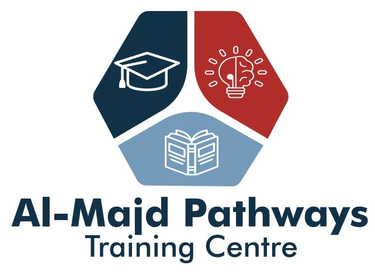
Advanced Process Risk Assessment & Risk Management
Seamlessly integrating engineering data into the management of mature oil fields
£12850.00£10800.00
INTRODUCTION
This Advanced Process Risk Assessment & Risk Management training course, offered by Al-Majd Pathways Centre (APC), addresses the critical issue of industrial disasters that can result from a combination of small failures, culminating in major incidents. Often, these small failures and defects go unnoticed until disaster strikes, but they can be predicted and avoided.
Health, Safety, and Environmental Management Systems are built on a proactive approach to incident prevention and reactive performance monitoring, including failure analysis. Advanced Process Risk Assessment is vital for all activities affecting health and safety, production, assets, the environment, and a company's reputation.
In this course, participants will learn to:
Enhance practical skills in applying advanced risk assessment techniques relevant to the process industry.
Strike a balance between risk and cost considerations.
Foster improved safety culture and motivation among personnel.
Understand the role of Risk Assessment and Control Measures in preventing and mitigating major hazards.
Explore the principles of incident causation and investigation.
TRAINING OBJECTIVES
Upon completing this Advanced Process Risk Assessment & Risk Management training course, participants will be able to:
Distinguish between hazards, risks, and risk assessments.
Evaluate different types of risk.
Comprehend Control Measures and Mitigation Measures.
Apply advanced risk assessment techniques relevant to the process industry.
Develop a strategy for planning and implementing risk reduction action plans.
Appreciate the role of human error in accidents.
Understand the root causes of major incidents.
WHO SHOULD ATTEND?
This course is suitable for:
Management and individuals responsible for risk and incident analysis.
Production, project, process, mechanical, control, maintenance, and HSE personnel.
Personnel involved in implementing the company's HSE Management System.
TRAINING APPROACH
Delegates will learn through active participation, engaging presentation tools, an interactive course, and role-playing activities presented in an enthusiastic and interesting style. The course includes topic exercises, case studies, and hands-on training.
TRAINING OUTLINE
Day 1: Advanced Risk Analysis
Introduction
Learning from Major Industrial Incidents
Principles of Risk Analysis
The ISO 31000 International Risk Management Standard
Risk Analysis Framework Considerations
Risk Evaluation Process and Risk Assessment Techniques
Personal Safety and Process Safety
Introduction to Layers of Protection (LOPs) concepts
Process Safety: Control Measures and Mitigation
Risk Assessment Tool: BowTie Diagrams as an Advanced Risk Assessment Tool
Day 2: Advanced Incident Analysis
Accident/Incident Causation
Active Failures and Latent Conditions
Barriers
Layers of Protection Analysis (LOPA)
Review of the BowTie Diagram
Investigating Accidents and Incidents
Incident Occurrences; Eye Witness Testimonies; Analysis Team
Gathering Evidence; Expert Support; Incident Sequence
Preliminary Causes; Root Cause Analysis; Human Factors
Risk Control Recommendations; Analysis Report
Review of Barriers
Day 3: Environmental Risks and Human Factors in Accident Causation
Overview of Environmental Hazards, Risks, and Risk Management
Barriers and Environmental Risks
Brief Overview of Human Factors in Incident Causation
Sensory and Perceptual Processes
Individual Psychology and Differences
Perception and Decision Making
Human Factors, Including Errors and Violations
Improving Human Reliability: Reducing the Likelihood of Errors and Violations
Day 4: Fires, Explosions, and Toxic Releases
Types of Fires (Including Pool Fires, Jet Fires, etc.)
Fault Tree Analysis
Explosions (LEL, UEL, and Dust Explosions)
Pressure Explosions
The DSEAR Risk Assessment
Toxic Releases
Incident Re-Occurrence: Organisations Have No Memory
Day 5: Health and Safety Culture
Hazard Report and Near Miss Reporting
Barriers to Reporting
Introduction to Safety Culture
Techniques for Improving Safety Culture
The Role of the HSE Management System
Certificate of Completion: Upon successful completion of the course, participants will receive a Certificate of Completion from Al-Majd Pathways Centre (APC).
Get in touch with us today.
Follow
Sign-up for our newsletter
0044 7466410010
©2025 All rights reserved.
